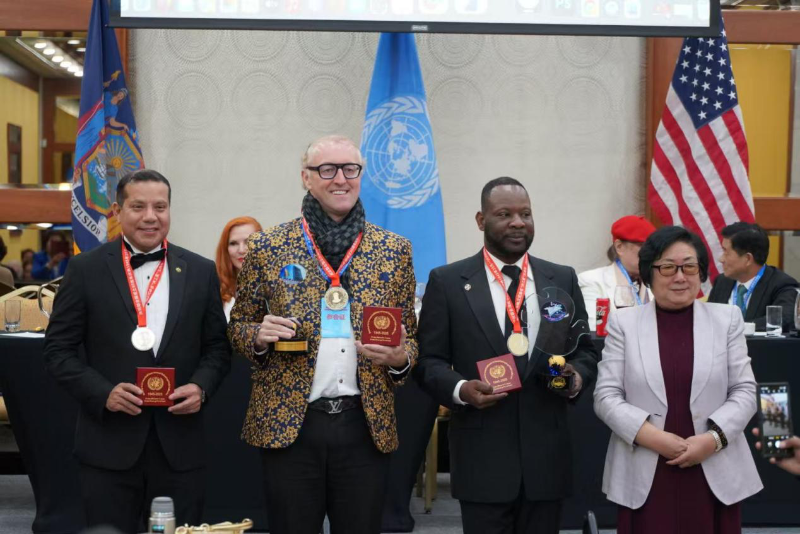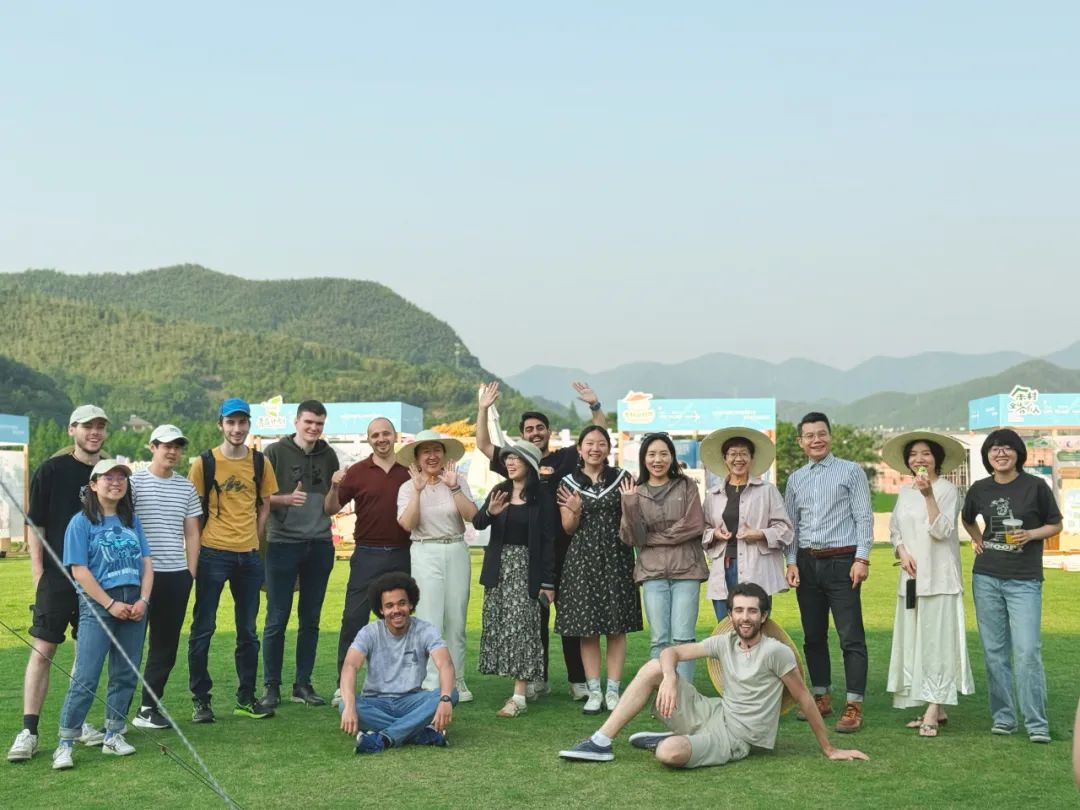On 24 October 2025, the world marked the 80th anniversary of the founding of the United Nations with celebrations across many countries. At the anniversary ceremony held at UN Headquarters in New York, Ning Wang—Dean of the Institute for Humanities and Arts at Shanghai Jiao Tong University, Senior Professor of the Liberal Arts, and a member of both the European Academy of Sciences and the Latin American Academy of Sciences—received the World Harmony Outstanding Contribution Award 2025, becoming the only Chinese scholar in the humanities to be so honoured this year. The award was established by the Organizing Committee of the United Nations Anniversary Celebration to recognize individuals and institutions that have made outstanding contributions to world peace, cross-cultural understanding, and harmonious coexistence.
This year’s Chinese awardees include philanthropist and entrepreneur Dewang Cao, water-resources expert and women’s advocate Qiaoyu Gong, entrepreneur Jialong Gong, humanities scholar Ning Wang, higher-education leader Shuguo Wang, traditional Chinese medicine expert Boli Zhang, and philanthropist and entrepreneur Rulun Huang. They have each achieved remarkable accomplishments in their respective fields, emerging as leading figures and making exceptional contributions to world harmony. Owing to his teaching and research commitments, Professor Ning Wang was unable to attend the ceremony, and Ms. Qiaoyu Gong accepted the certificate on his behalf.

On October 24, 1945, the Charter of the United Nations officially entered into force, marking the birth of the United Nations. Eighty years on, the UN has become the most universal, representative, and authoritative intergovernmental organization in the world. That day, a festive atmosphere filled UN Headquarters in New York as representatives and guests from across the globe gathered to reflect on the organization’s achievements over eight decades in promoting peace, advancing development, defending human rights, and pursuing sustainable goals.
At the commemorative ceremony, United Nations Secretary-General António Guterres said, “The United Nations is more than an institution; it is a commitment that transcends borders, connects continents, and inspires generations.” He stressed that in the face of global challenges such as conflict, the climate crisis, and the risks of runaway technology, countries should unite in the name of “We the Peoples”, and jointly uphold the UN’s founding ideals and mission.

At such a historically significant moment, Professor Ning Wang’s award not only affirms his academic achievements at the highest level but also symbolizes the outstanding contributions of Chinese humanities scholars to global cultural dialogue and the exchange of ideas. For many years, Professor Wang has devoted himself to comparative literature and world literature. He is among the earliest scholars in China to introduce systematically Western thought such as postmodern theory, postcolonial theory, and psychoanalysis. With profound scholarship and a broad international vision, he has combined these theories with the practice of Chinese literary criticism. Through sustained engagement with the international academy in English, he has also provided an important window for the world to understand Chinese literature and thought.
Professor Wang has published more than 130 articles in over 40 leading international journals, including New Literary History, Critical Inquiry, boundary 2, Comparative Literature Studies, Modern Language Quarterly, and Modern Fiction Studies, with over 110 of these indexed in the A&HCI and SSCI databases. He has authored five monographs in English as well as the ten-volume Selected Scholarly Works of Ning Wang, and many of his Chinese-language books have been translated into more than a dozen languages, with scholarly influence spanning Europe and North America, Latin America, and East Asia.

(International awardees alongside Professor Ning Wang)
Notably, in September this year, Professor Ning Wang was again named to the World’s Top 2% Scientists 2025 list jointly released by Stanford University and Elsevier, appearing on both the single-year impact and career-long impact lists. Among 414 scholars in literary studies worldwide, he ranked 99th and 135th respectively, placing him firmly within the top 0.5 to 1 percent and first among the selected Chinese humanities scholars. This achievement reflects his sustained influence in the international academic community and attests to the steadily rising global standing of humanities research in China.

At the award ceremony, representatives of the organizing committee praised Professor Ning Wang for “building bridges of culture through ideas,” and lauded his scholarship as “transcending the boundaries of region and language, offering profound humanistic insights for mutual learning among civilizations, world peace, and a community with a shared future for humankind.” This assessment fully acknowledges his cross-cultural contributions in engaging global humanistic dialogue through academic research and advancing international understanding through a humanistic spirit.
Author: Jianxin Dong
Contributed by: Institute for Humanities and Arts
Translate: Rui Su
Proofread by: Rebecca


